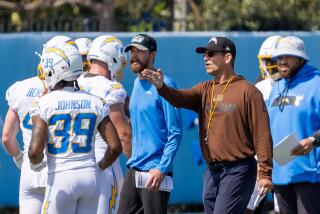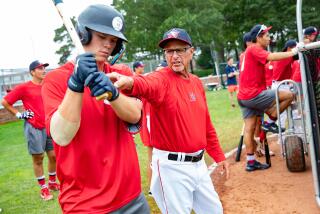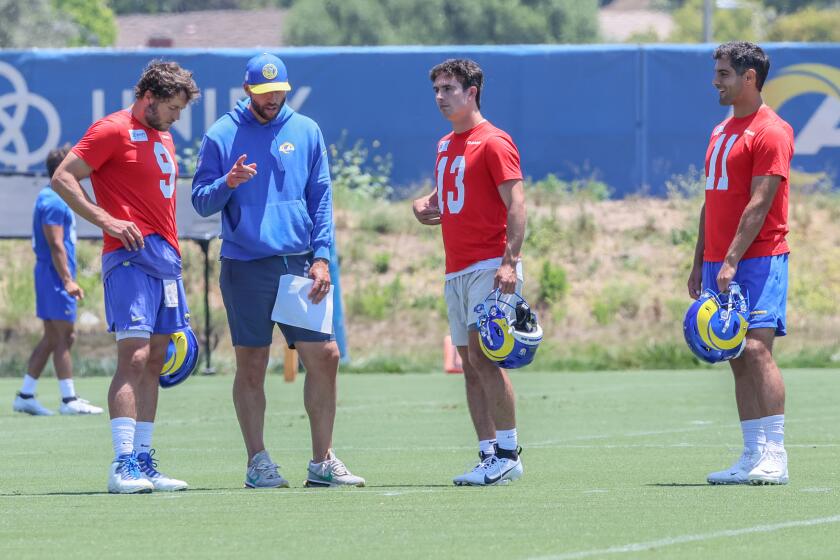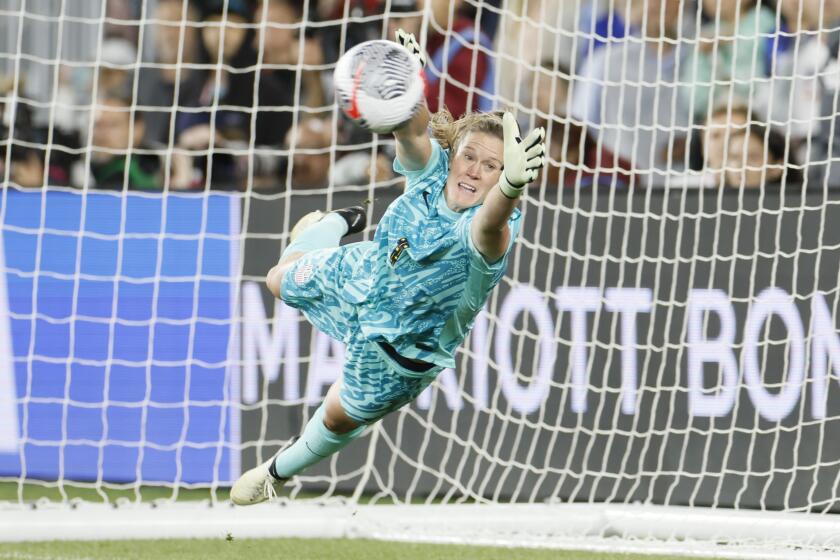Robinson Paid a Price for Keeping It Inside
In his 1990 book, “The Sporting Life,” Irving Rudd, onetime publicist for the Brooklyn Dodgers, wrote at length about the racial abuse Jackie Robinson suffered in 1947, the year he broke baseball’s color barrier.
When Robinson was signed by the Dodgers’ Branch Rickey, Robinson, anticipating racial problems, asked if he could fight back.
“No,” Rickey told him. “I know you’re a good ballplayer. What I don’t know is whether you have the guts not to fight back.”
And so it was that in the first years, Robinson endured in silence unspeakable taunts from opposing players, coaches and managers . . . some, even, from his own teammates.
Calling Robinson “a hair-trigger kind of guy,” Rudd wrote it was unnatural for him to suffer in silence. He wrote: “I am certain that Jackie’s forced cool during those first seasons in Brooklyn cost him a couple of decades of his life.”
Robinson, only 53, died 27 years ago today at his home in Stamford, Conn., of a heart attack. He was in poor health, nearly blind from diabetes.
Wrote Rudd: “There isn’t a black athlete, past or present, from Bill Russell to Kareem Abdul-Jabbar to Willie Mays, who shouldn’t bless the name of Jack Roosevelt Robinson every night before he goes to bed--or counts his millions. [If not for Robinson] it would have taken another 10 years before we saw a black in the bigs.”
Nine days before he died, Robinson was honored in a ceremony staged by the Cincinnati Reds. A man handed him a baseball, asking for his autograph.
“I’m sorry,” Robinson said, “I can’t see it. I’d be sure to mess up the names you already have on it.”
Responded the man, “There are no other names. I only want yours.”
*
Also on this date: In 1960, the Lakers played their first game at their new home, the Sports Arena, and lost to New York, 111-101, before 4,008. . . . In 1970, former San Jose State athlete Christos Papanicolaou became history’s first 18-foot pole vaulter by clearing 18 feet 1/4 inch at Athens. . . . In 1970, Stanford kicked three field goals to defeat UCLA, 9-7, before 83,518 at the Coliseum.
More to Read
Go beyond the scoreboard
Get the latest on L.A.'s teams in the daily Sports Report newsletter.
You may occasionally receive promotional content from the Los Angeles Times.






